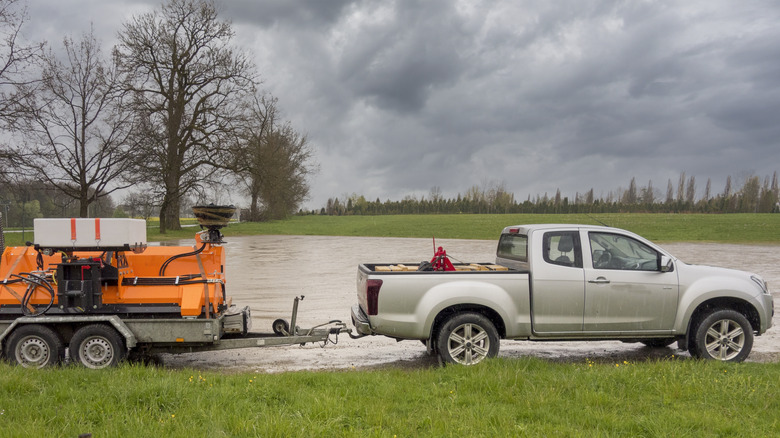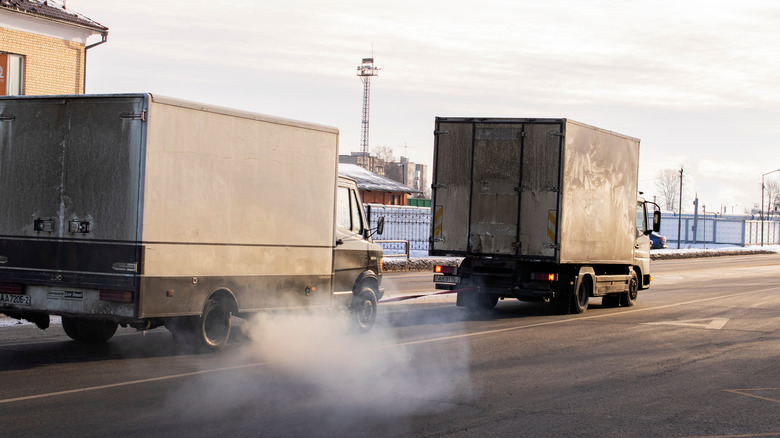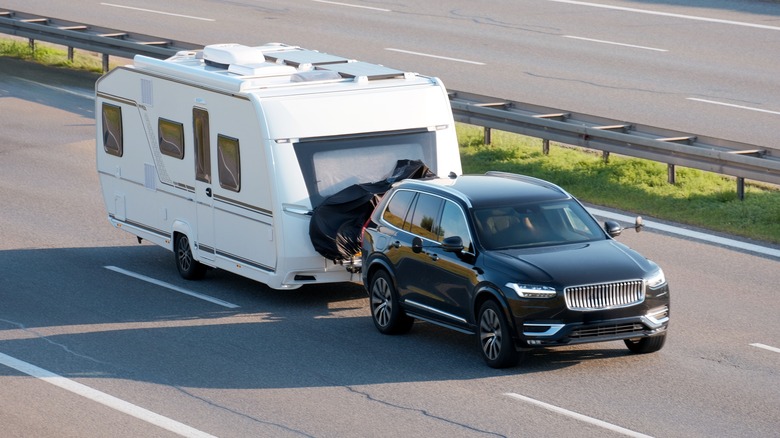Should You Cross Your Trailer Chains While Towing?
When you're hauling a trailer, safety isn't just about the hitch and the load. You need to make sure every single safety tip for towing the trailer is carefully followed — especially the little things that often go unnoticed, like the chains hanging underneath. These chains are designed to act as a backup in case the hitch fails during transit. Surprisingly, one of the most important safety steps, which is crossing those chains, is something many drivers overlook.
Instead of running straight from point A to B, the chains should crisscross to form an "X" under the trailer tongue. Why? That crossing creates a cradle, which is a simple but effective safety net that can catch the tongue if it ever comes loose. Without that support, the tongue could slam into the ground and send your trailer loose on the road. This could cause serious damage to both your trailer and tow vehicle. In a worst-case scenario, it could also create a major hazard for anyone else on the road. Crossing your chains takes just a few seconds, but it could save your trailer, your vehicle, or even a life.
Why and how to cross your trailer chains
Properly crossed safety chains are designed to absorb shock and control the trailer if it disconnects. That crisscrossing motion helps prevent the tongue from dropping too far or hitting the pavement, and it also keeps the trailer lined up more safely behind your vehicle. While the uncrossed chains may still be attached, they won't offer nearly the same control or support, especially at high speeds or during sudden stops. Even a small bump or swerve could cause major instability if the chains aren't doing their job.
There is a right way to do it. Always connect the right-hand chain to the left attachment point and the left-hand chain to the right. Use clevis hooks with safety latches, and make sure the chains aren't twisted, which can weaken their strength and even cause them to fail under stress. Taking a few minutes to double-check your setup, like whether the chains are crossed or your trailer is following the 80% rule, can make a big difference.
Chain length and condition make all the difference
Another important consideration before you start towing is to make sure your chain length is just right. If it's too short, you'll limit your ability to turn or cause unnecessary tension. Too long and they'll drag, wear down, or spark against the road, which is a serious hazard. The chains should hang with a little slack but not touch the ground. A good rule of thumb: They should allow full turns without pulling tight, but not dangle low enough to scrape pavement or get caught on obstacles.
Regular maintenance is just as important as setup, too. Chains should be rated for at least 50% of your trailer's gross weight. Before each trip, inspect them for rust, cracks, or thinning as even light corrosion can weaken them over time. You can also clean and lubricate them occasionally to help prevent wear, especially in wet environments.
Remember to never try to shorten chains by twisting them, as it can also reduce their strength. If they look stretched, bent, or damaged in any way, it's best to replace them before your next trip. Keeping a spare set in your essential towing accessories isn't a bad idea.


